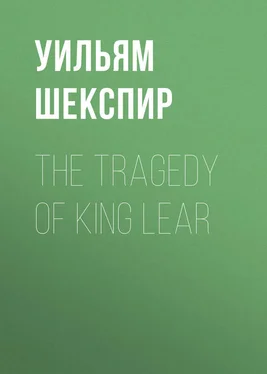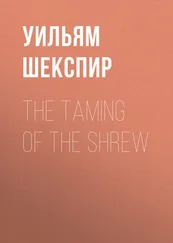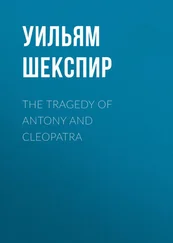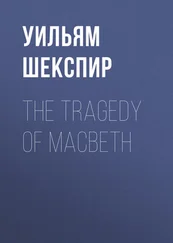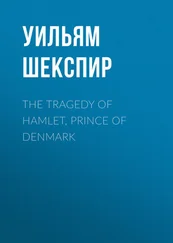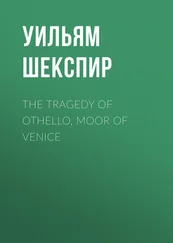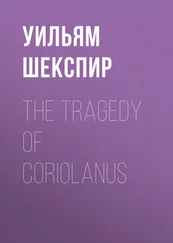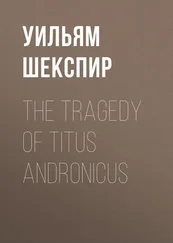Уильям Шекспир - The Tragedy of King Lear
Здесь есть возможность читать онлайн «Уильям Шекспир - The Tragedy of King Lear» — ознакомительный отрывок электронной книги совершенно бесплатно, а после прочтения отрывка купить полную версию. В некоторых случаях можно слушать аудио, скачать через торрент в формате fb2 и присутствует краткое содержание. Жанр: Европейская старинная литература, Драматургия, foreign_dramaturgy, на английском языке. Описание произведения, (предисловие) а так же отзывы посетителей доступны на портале библиотеки ЛибКат.
- Название:The Tragedy of King Lear
- Автор:
- Жанр:
- Год:неизвестен
- ISBN:нет данных
- Рейтинг книги:3 / 5. Голосов: 1
-
Избранное:Добавить в избранное
- Отзывы:
-
Ваша оценка:
- 60
- 1
- 2
- 3
- 4
- 5
The Tragedy of King Lear: краткое содержание, описание и аннотация
Предлагаем к чтению аннотацию, описание, краткое содержание или предисловие (зависит от того, что написал сам автор книги «The Tragedy of King Lear»). Если вы не нашли необходимую информацию о книге — напишите в комментариях, мы постараемся отыскать её.
The Tragedy of King Lear — читать онлайн ознакомительный отрывок
Ниже представлен текст книги, разбитый по страницам. Система сохранения места последней прочитанной страницы, позволяет с удобством читать онлайн бесплатно книгу «The Tragedy of King Lear», без необходимости каждый раз заново искать на чём Вы остановились. Поставьте закладку, и сможете в любой момент перейти на страницу, на которой закончили чтение.
Интервал:
Закладка:
William Shakespeare
The Tragedy of King Lear
Lear, King of Britain.
King of France.
Duke of Burgundy.
Duke of Cornwall.
Duke of Albany.
Earl of Kent.
Earl of Gloucester.
Edgar, son of Gloucester.
Edmund, bastard son to Gloucester.
Curan, a courtier.
Old Man, tenant to Gloucester.
Doctor.
Lear's Fool.
Oswald, steward to Goneril.
A Captain under Edmund's command.
Gentlemen.
A Herald.
Servants to Cornwall.
Goneril, daughter to Lear.
Regan, daughter to Lear.
Cordelia, daughter to Lear.
Knights attending on Lear, Officers, Messengers, Soldiers, Attendants.
Scene: – Britain
ACT I. Scene I. [King Lear's Palace.]
Enter Kent, Gloucester, and Edmund. [Kent and Glouceste converse. Edmund stands back.]
Kent. I thought the King had more affected the Duke of Albany
than
Cornwall.
Glou. It did always seem so to us; but now, in the division of
the
kingdom, it appears not which of the Dukes he values most,
for
equalities are so weigh'd that curiosity in neither can make
choice of either's moiety.
Kent. Is not this your son, my lord?
Glou. His breeding, sir, hath been at my charge. I have so
often
blush'd to acknowledge him that now I am braz'd to't.
Kent. I cannot conceive you.
Glou. Sir, this young fellow's mother could; whereupon she grew
round-womb'd, and had indeed, sir, a son for her cradle ere
she
had a husband for her bed. Do you smell a fault?
Kent. I cannot wish the fault undone, the issue of it being so
proper.
Glou. But I have, sir, a son by order of law, some year elder
than
this, who yet is no dearer in my account. Though this knave
came
something saucily into the world before he was sent for, yet
was
his mother fair, there was good sport at his making, and the
whoreson must be acknowledged. – Do you know this noble
gentleman,
Edmund?
Edm. [comes forward] No, my lord.
Glou. My Lord of Kent. Remember him hereafter as my honourable
friend.
Edm. My services to your lordship.
Kent. I must love you, and sue to know you better.
Edm. Sir, I shall study deserving.
Glou. He hath been out nine years, and away he shall again.
Sound a sennet.
The King is coming.
Lear. Attend the lords of France and Burgundy, Gloucester.
Glou. I shall, my liege.
Lear. Meantime we shall express our darker purpose.
Give me the map there. Know we have divided
In three our kingdom; and 'tis our fast intent
To shake all cares and business from our age,
Conferring them on younger strengths while we
Unburthen'd crawl toward death. Our son of Cornwall,
And you, our no less loving son of Albany,
We have this hour a constant will to publish
Our daughters' several dowers, that future strife
May be prevented now. The princes, France and Burgundy,
Great rivals in our youngest daughter's love,
Long in our court have made their amorous sojourn,
And here are to be answer'd. Tell me, my daughters
(Since now we will divest us both of rule,
Interest of territory, cares of state),
Which of you shall we say doth love us most?
That we our largest bounty may extend
Where nature doth with merit challenge. Goneril,
Our eldest-born, speak first.
Gon. Sir, I love you more than words can wield the matter;
Dearer than eyesight, space, and liberty;
Beyond what can be valued, rich or rare;
No less than life, with grace, health, beauty, honour;
As much as child e'er lov'd, or father found;
A love that makes breath poor, and speech unable.
Beyond all manner of so much I love you.
Cor. [aside] What shall Cordelia speak? Love, and be silent.
Lear. Of all these bounds, even from this line to this,
With shadowy forests and with champains rich'd,
With plenteous rivers and wide-skirted meads,
We make thee lady. To thine and Albany's issue
Be this perpetual. – What says our second daughter,
Our dearest Regan, wife to Cornwall? Speak.
Reg. Sir, I am made
Of the selfsame metal that my sister is,
And prize me at her worth. In my true heart
I find she names my very deed of love;
Only she comes too short, that I profess
Myself an enemy to all other joys
Which the most precious square of sense possesses,
And find I am alone felicitate
In your dear Highness' love.
Cor. [aside] Then poor Cordelia!
And yet not so; since I am sure my love's
More richer than my tongue.
Lear. To thee and thine hereditary ever
Remain this ample third of our fair kingdom,
No less in space, validity, and pleasure
Than that conferr'd on Goneril. – Now, our joy,
Although the last, not least; to whose young love
The vines of France and milk of Burgundy
Strive to be interest; what can you say to draw
A third more opulent than your sisters? Speak.
Cor. Nothing, my lord.
Lear. Nothing?
Cor. Nothing.
Lear. Nothing can come of nothing. Speak again.
Cor. Unhappy that I am, I cannot heave
My heart into my mouth. I love your Majesty
According to my bond; no more nor less.
Lear. How, how, Cordelia? Mend your speech a little,
Lest it may mar your fortunes.
Cor. Good my lord,
You have begot me, bred me, lov'd me; I
Return those duties back as are right fit,
Obey you, love you, and most honour you.
Why have my sisters husbands, if they say
They love you all? Haply, when I shall wed,
That lord whose hand must take my plight shall carry
Half my love with him, half my care and duty.
Sure I shall never marry like my sisters,
To love my father all.
Lear. But goes thy heart with this?
Cor. Ay, good my lord.
Lear. So young, and so untender?
Cor. So young, my lord, and true.
Lear. Let it be so! thy truth then be thy dower!
For, by the sacred radiance of the sun,
The mysteries of Hecate and the night;
By all the operation of the orbs
From whom we do exist and cease to be;
Here I disclaim all my paternal care,
Propinquity and property of blood,
And as a stranger to my heart and me
Hold thee from this for ever. The barbarous Scythian,
Or he that makes his generation messes
To gorge his appetite, shall to my bosom
Be as well neighbour'd, pitied, and reliev'd,
As thou my sometime daughter.
Kent. Good my liege-
Lear. Peace, Kent!
Come not between the dragon and his wrath.
I lov'd her most, and thought to set my rest
On her kind nursery. – Hence and avoid my sight! -
So be my grave my peace as here I give
Her father's heart from her! Call France! Who stirs?
Call Burgundy! Cornwall and Albany,
With my two daughters' dowers digest this third;
Let pride, which she calls plainness, marry her.
I do invest you jointly in my power,
Preeminence, and all the large effects
That troop with majesty. Ourself, by monthly course,
With reservation of an hundred knights,
By you to be sustain'd, shall our abode
Make with you by due turns. Only we still retain
The name, and all th' additions to a king. The sway,
Revenue, execution of the rest,
Beloved sons, be yours; which to confirm,
This coronet part betwixt you.
Kent. Royal Lear,
Whom I have ever honour'd as my king,
Lov'd as my father, as my master follow'd,
As my great patron thought on in my prayers-
Lear. The bow is bent and drawn; make from the shaft.
Kent. Let it fall rather, though the fork invade
The region of my heart! Be Kent unmannerly
Интервал:
Закладка:
Похожие книги на «The Tragedy of King Lear»
Представляем Вашему вниманию похожие книги на «The Tragedy of King Lear» списком для выбора. Мы отобрали схожую по названию и смыслу литературу в надежде предоставить читателям больше вариантов отыскать новые, интересные, ещё непрочитанные произведения.
Обсуждение, отзывы о книге «The Tragedy of King Lear» и просто собственные мнения читателей. Оставьте ваши комментарии, напишите, что Вы думаете о произведении, его смысле или главных героях. Укажите что конкретно понравилось, а что нет, и почему Вы так считаете.
